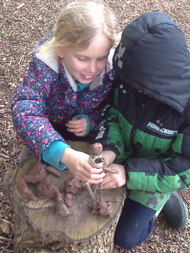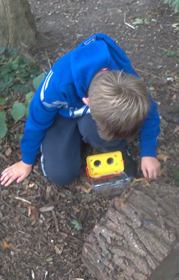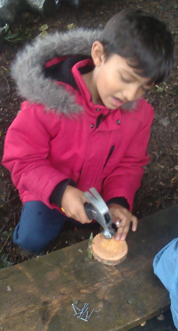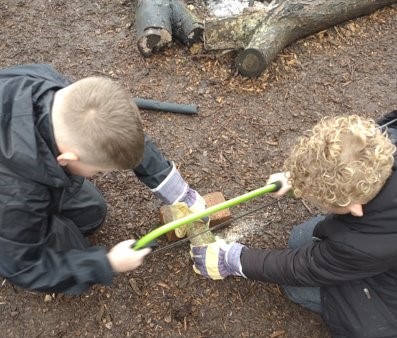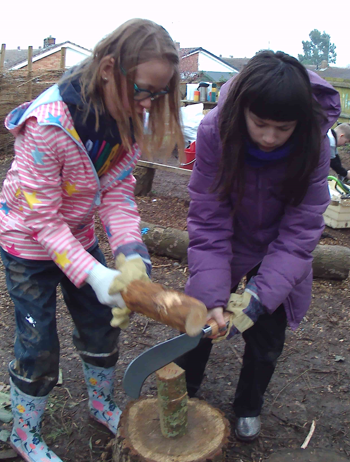
Forest School
Forest School Aims
Our Forest School is a long-term learning journey which the children will be involved in throughout their time at DSJ. The children will have the opportunity to learn in our wooded Forest School area within the school grounds, it supports our inquiry-based approach to learning at DSJ. The learning takes place in all weathers throughout the year.
The holistic approach in Forest School helps learners to direct their own learning through a range of experiences these include natural crafts, tool skills, making fires, cooking, knot making, playing in the mud kitchen, woodland management, sensory activities and making shelters during these outdoor sessions.
These stimulating and varied learning opportunities will ensure that all learners will;
- be provided with opportunities so they can develop and learn as an individual.
- have fun and enjoy themselves.
- be provided with a safe natural environment in which they can take risks.
- be helped to understand, respect, appreciate and care for the natural environment.
- be encouraged to develop their self- confidence and self-esteem.
- develop their interpersonal, social and team working skills.
- be independent, self-motivated and considerate .
- develop self-motivation, resilience and self-awareness.
- develop their listening skills and turn taking.
- be able to work through problems and challenges.
- be able to develop practical skills, use tools to create, build and manage .
- be able to concentrate and then reflect on their learning.
These sessions are run by a qualified Forest School Leader with the necessary support .
Forest School Principles (Forest Schools Association)
Our Forest School aims are structured by the 6 principles of Forest School outlined by the Forest School Association;
- Forest School is a long-term process of frequent and regular sessions in a woodland or natural environment, rather than a one-off visit. Planning, adaptation, observations, and reviewing are integral elements of Forest School.
- Forest School takes place in a woodland or natural wooded environment to support the development of a relationship between the learner and the natural world.
- Forest School aims to promote the holistic development of all those involved, fostering resilient, confident, independent, and creative learners.
- Forest School offers learners the opportunity to take supported risks appropriate to the environment and to themselves.
- Forest School is run by qualified Forest School practitioners who continuously maintain and develop their professional practice.
- Forest School uses a range of learner-centred processes to create a community for development and learning.
